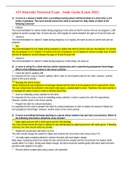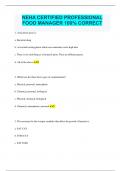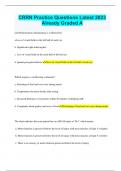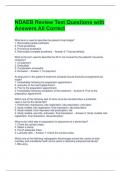Summary
Summary A Level English - A Streetcar Named Desire Context A03
- Module
- A Streetcar Named Desire
- Institution
- AQA
Context for A Streetcar Named Desire is an easy way to pick up marks, accounting for 10/45 available marks for this question. This document includes information about: 1. The author's life 2. Social, economic, cultural factors 3. The Mode of Theatre 4. History of Production 5. Receptio...
[Show more]












